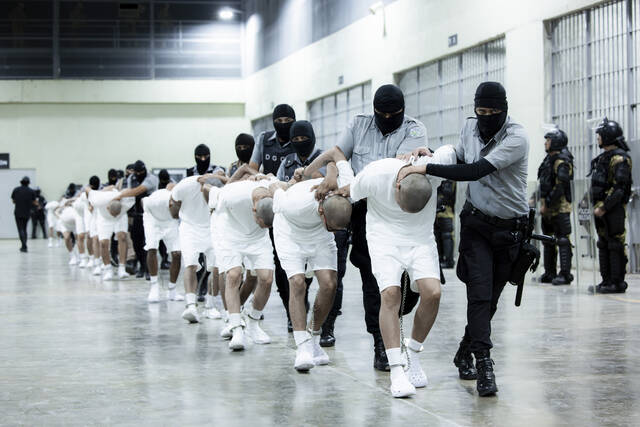
The term “on paper” acknowledges a good idea may be very different from a good reality.
For example, open mic night at a club works in theory. The club gets entertainment, and new talent gets a shot at the stage. Win-win. In practice, however, open mic nights might be almost indistinguishable from a bachelorette party at a karaoke bar. The reality has a better-than-average chance at falling short of the goal.
On paper, America cares about the rights of people charged with crime.
The paper, in this case, is the U.S. Constitution, which includes multiple amendments that address the issue. That isn’t surprising. The Constitution was written or adopted by men who committed treason by breaking from Great Britain to form our country. The line between citizen and criminal was not theoretical to them.
The Fourth Amendment addresses the need for probable cause and warrants. The Fifth prevents self-incrimination. The Sixth demands trials happen publicly and in a reasonable time frame. The Seventh ensures a jury. The Eighth stands in the way of excessive or cruel punishment.
However, regardless of what “Perry Mason” and “Law & Order” have taught us, there are ways around these.
Let’s consider prisons. A federal prison has to follow federal laws. It has thresholds for staffing and must offer prisoners certain programs and access.
A private prison must do what it is contracted to do. That may leave gaps in things like the Freedom of Information Act. The language of its agreement with the Bureau of Prisons may encourage certain staffing requirements but not mandate them. That can be problematic, if not outright dangerous, for inmates and staff.
Technically, there are no federal inmates in private prisons. In 2022, the Bureau of Prisons ended its contracts with private prisons. However, the Biden administration and the Trump administration have used private prison companies like GEO Group to house foreign nationals in custody. As of March, there were more than 40,000 such individuals in private custody.
Now the Trump administration is sending detainees to be housed on foreign soil. This started with the idea of sending them to Guantanamo Bay, the U.S. base in Cuba where terrorists were sent under Patriot Act authorization. Now they are being sent to El Salvador’s Terrorism Confinement Center (CECOT), a mega prison where foreign nationals were moved with their shaved heads pushed down, their backs bent forward and hands shackled behind, with masked guards.
There is no state in the union where this would be considered acceptable. There is no founding father who would not have made preventing this part of the Bill of Rights.
And that is without even mentioning Kilmar Abrego Garcia, the El Salvadoran man living in Maryland with his family, a man the government admits was sent to CECOT in error but has resisted bringing back despite orders from multiple judges, including the U.S. Supreme Court.
Finding new ways to provide safety and security to our people and our country sounds good on paper. In practice, we must be ever mindful of the original paper of our founding and its requirements for decency, fairness and a lack of cruelty in how we maintain that safety.
Lori Falce is the Tribune-Review community engagement editor and an opinion columnist. For more than 30 years, she has covered Pennsylvania politics, Penn State, crime and communities. She joined the Trib in 2018. She can be reached at lfalce@triblive.com.
This post was originally published on this site be sure to check out more of their content.






